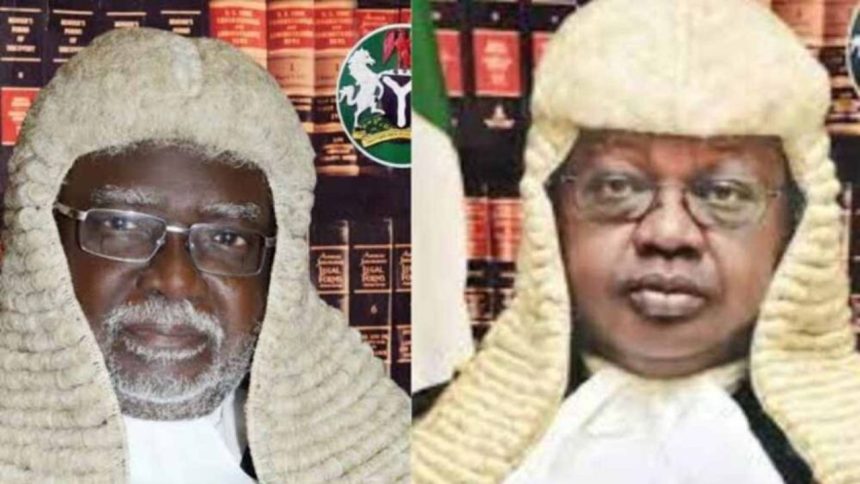Retired Justice Dattijo Muhammad has accused the Chief Justice of Nigeria,Justice Olukayode Ariwoola of using his judicial powers to the detriment of the judiciary by deliberately excluding Igbo judges from the Supreme Court.
Justice Muhammad made the allegations on Friday during his valedictory speech having served the Nigerian judiciary for 47 years
Dattijo stressed that the absence of Igbo judges on the Supreme Court bench has undermined the representation of different ethnic groups in the judiciary and has weakened public confidence in the judiciary
According to him, Igbo judges were excluded from the Supreme Court bench even though the South-East region is entitled to seats on the bench.
Dattijo maintained that it is “dangerous” for democracy when the apex court is only composed of judges from South West, South-South, North West with none from the South-East.
He said now that he’s bowing out, the North-Central will be left with no representation.
He noted that in order “to ensure justice and transparency in presidential appeals from the lower court, all geopolitical zones are required to participate in the hearing.
Being the next most senior justice of the apex court before his retirement, Dattijo explained that he was like a deputy governor who is not consulted by his principal over any decision
Speaking further on the powers of the CJN, he suggested that the absolute powers the office has over the National Judicial Council (NJC), Federal Judicial Service Commission (FJSC), National Judicial Institute (NJI), the Legal Practitioners Privileges Committee ( LPPC) which appoints Senior Advocate of Nigeria, can only breed corruption.
“As chair of the NJC, FJSC, NJI and LPPC, appointments as council, board and committee members are at his pleasure. He neither confers with fellow justices nor seek their counsel or input on any matter related to these bodies. He has both the final and the only say. The CJN has power to appoint 80 percent of members of the council and 60 percent of members of FJSC. The same applies to NJI and LPPC.
This power, he said, allows the CJN to appoint judges and other judicial officials, as well as control the judiciary’s budget
(Editor: Ena Agbanoma)








